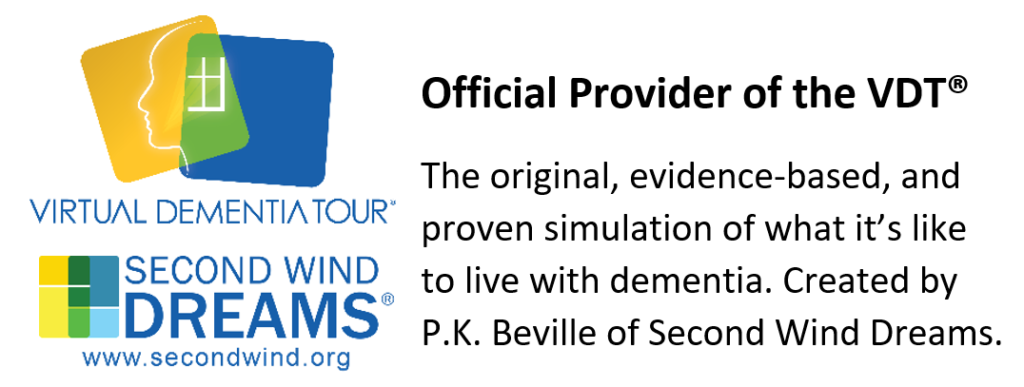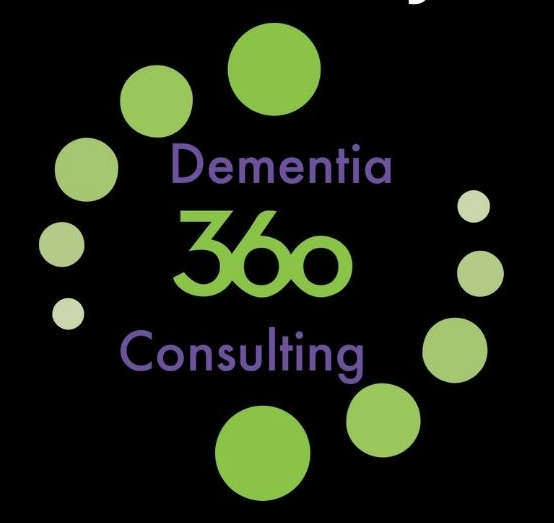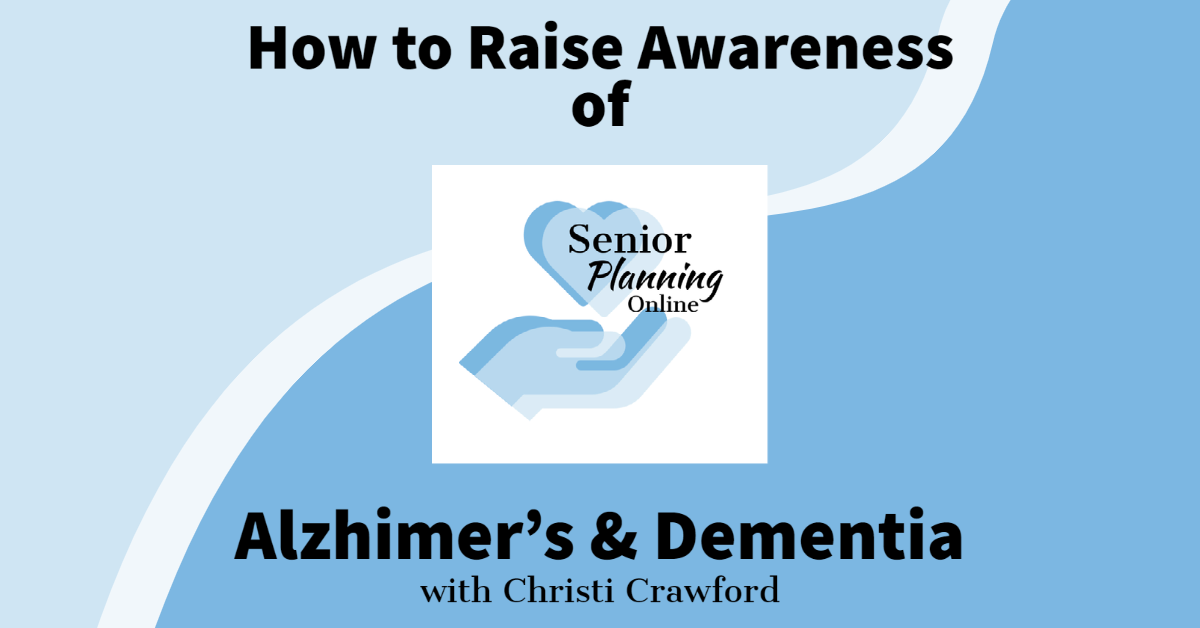There are many challenges that individuals living with dementia often face. Most people immediately think of the symptoms of the disease such as:
- difficulty having a conversation
- poor judgement
- decision making
- misplacing things
- inability to manage a budget
- behaviors that include wandering, sundowning, hallucinations, delusions, paranoia and other behaviors.
Check out earlier blog posts for more information on Alzheimer’s and Dementia: How Alzheimer’s Disease Affects the Brain & What To Expect In Each Stage of Alzheimer’s Disease
I, however, want to discuss challenges that I see from the perspective of a clinician and a family caregiver (both of which I am and have been).
I’m going to talk about how healthcare professionals and family caregivers can advocate for those with dementia to have an enhanced quality of life.
EARLY DIAGNOSIS
There are many barriers to obtaining an early diagnosis. The first one that stands out the most to me is the perceived stigma that is attached to dementia. The stigma of dementia will cause an individual to delay the initial diagnosis process.
There is the belief that memory problems are just part of normal aging. People may be afraid to get diagnosed because of the lack of future it will mean for them. Knowing that there is not a cure yet, can feel like an immediate end to life for that individual.
However, getting an early diagnosis provides time to plan and prepare for future caregiving. Being able to plan, can give individuals and families the opportunity to contribute to the care planning process.
Understanding the disease can make it easier to seek out resources and create a support system. Additionally, an early diagnosis gives time to make legal and financial arrangements, plan future living arrangements if needed.
ACCURATE DIAGNOSIS
As a Healthcare Professional, the most frequent question I get asked is: Are Alzheimer’s disease and dementia the same thing?
No, Alzheimer’s and dementia are not the same thing but rather Alzheimer’s is a type of dementia.
Dementia is an umbrella term that is used to describe a particular group of symptoms. This includes difficulties with language, problem solving, memory and other thinking skills.
I use cancer as an example to explain the umbrella term, dementia.
If I am given a diagnosis of cancer, do I take that general cancer diagnosis, go home and automatically know what is the best course of treatment is?
I can guarantee that if you are given a cancer diagnosis, you are going to expect the doctor to tell you exactly what type of cancer. This helps you and the doctor know what specific area(s) to target and know best how to treat to have the best chance at recovery or quality of life.
So why do we not demand that with a dementia diagnosis?
When a diagnosis of dementia is given, we just accept that as the official diagnosis and go home.
Why do we not demand a specific diagnosis?
To ensure you have an accurate diagnosis, you will be required to take additional tests. You should also be referred to a specialist or memory clinic (much like a Primary Care refers to an Oncologist when you have a cancer diagnosis).
There is no one specific test that can diagnose dementia or specifically what type of dementia you have. You will need to go through several cognitive and physical exams. An official diagnosis should be able to be determined once all test results have been received along with your detailed medical history.
Why is it important to advocate for a specific diagnosis?
We must do a better job of advocating for a specific diagnosis. There are over 100 different types of dementia and Alzheimer’s disease is the most common of all dementias.
Without a specific diagnosis, we don’t know the best course of treatment for the most favorable outcome. We won’t know the best care to be provided and how to best enhance the quality of life for that individual living with a type of dementia. The care provided for AD (Alzheimer’s Disease) is different than that of someone with LBD (Lewy Body Dementia) and the same goes for all other dementias.
It’s important to know what type of dementia we are caring for, so that we know what to expect with cognitive function, engagement, and potential behavioral symptoms.
Awareness & Understanding Dementia
Why is it important to raise awareness and understanding of dementia, you ask?
As the global population is rapidly aging, there is a growing number of people that are developing dementia. Dementia impacts the individual, who feel they’ve lost their life; the family who cares for the person with dementia; and the community, who deal with the increasing need of care and support for those with dementia.
Everyone in the community is impacted when there is someone living with dementia. We as a community must have a better understanding of dementia and promote a dementia friendly society that is accepting of dementia.
We must not exclude individuals from the community, their friends or family. Rather, when we understand dementia, we can create dementia friendly businesses and community events that bring the community together to support those living with dementia and their caregivers.
Understanding helps us to recognize the early signs and reduce the stigma and fear of dementia. When the stigma is no longer there, so is the social isolation that occurs by both the individual living with dementia and the caregiver and so are the delays in seeking a diagnosis and help.
Raising Awareness & Understanding in Your Community
How do you raise awareness and understanding of dementia?
I believe that education and proper training are the best ways to help other develop an understanding of the issues faced by both caregivers and the loved one with dementia.
We can create dementia friendly communities, by training frontline staff at local service business such as police, banks, grocery stores, restaurants on how to respond to people with dementia in their day-to-day life. We need to include people with dementia and engage with them.
When we can experience “walking in their shoes”, we are able to develop empathy and compassion for the individual living with dementia and there for provide better care and support for both the individual and the caregiver.
How to Walk in Their Shoes
I strongly believe that the best way to truly understand is to experience what it is like to “walk in their shoes.”
This can be done through the Virtual Dementia Tour (VDT). The VDT simulates the effects of aging and dementia through a patented and evidence-based method of building a greater understanding of dementia.

The VDT creates appreciation of the day-to-day symptoms and challenges facing those with dementia and results in greater understanding. When we have greater understanding, we set the stage for better care and better quality of life.
I encourage you to help start that in your community today.
How Dementia 360 Consulting Can Help
Dementia360 Consulting has helped many families on their dementia journeys.
Families have been encouraged and given hope as they have developed an understanding of their loved one’s dementia diagnosis and how to provide the best care possible.
With the tips and tools given, families feel confident and empowered better understanding how to communicate with their loved ones as well as apply non-pharmacological approaches to care. Families no long feel alone on their dementia journey and have a sense of peace.
Dementia360 Consulting has helped many healthcare professionals to understand the various types of dementia that they see with their patients and residents.
Staff are constantly saying that they no longer feel overwhelmed by what they referred to before as behaviors but now they understand that their patients/residents are communicating either verbally or nonverbally their needs through the behaviors they present with to them.
Healthcare professionals are feeling confident and not as frustrated as they have begun to develop empathy and compassion through the trainings, they have received to help them best understand how to provide great care to their dementia patients/residents. Staff are excited to say they are dementia certified and trained and feel more valuable as an employee as well.
Contact us at Dementia360 Consulting or reach out to your local Alzheimer’s Association and start being part of the change. #BeTheChange.
You can reach us at the following:

Website: www.Dementia-360.com
Facebook: @Dementia360Cons
Instagram: dementia360_cons
Email: Christi@Dementia-360.com

Christi Crawford
Hello! My name is Christi Crawford. I have worked in healthcare for 30+ years and have been a nurse for just over 11 of those. My initial experience with dementia began when I was only 17 working as a nurse’s aide in a facility in Kansas. Since that time, I have worked with hundreds, maybe thousands of individuals and families living with dementia or caring for their loved ones with dementia. I specialize in geriatric care and have worked in many settings caring for the geriatric population including hospital, nursing home, assisted living, memory care, home health, private duty, and hospice care.
Professionally, I have worked in leadership roles within senior care that include Director of Nursing, and as a Licensed Assisted Living Operator as well as worked privately for families as a Patient Advocate, Coach, and Consultant.
I am passionate about creating a change around dementia that ultimately creates dementia-friendly communities that have a full understanding of dementia. I want to create understanding that allows for caregivers and families to learn tools to better understand what their loved one living with dementia is experiencing as well as communicating. I want to create opportunities that will equip and empower healthcare workers with the tools and training that is needed to improve the quality of care and to enhance the quality of life for those living with dementia. I want those on a personal dementia journey to have a sense of joy and hope throughout their journey.


No responses yet